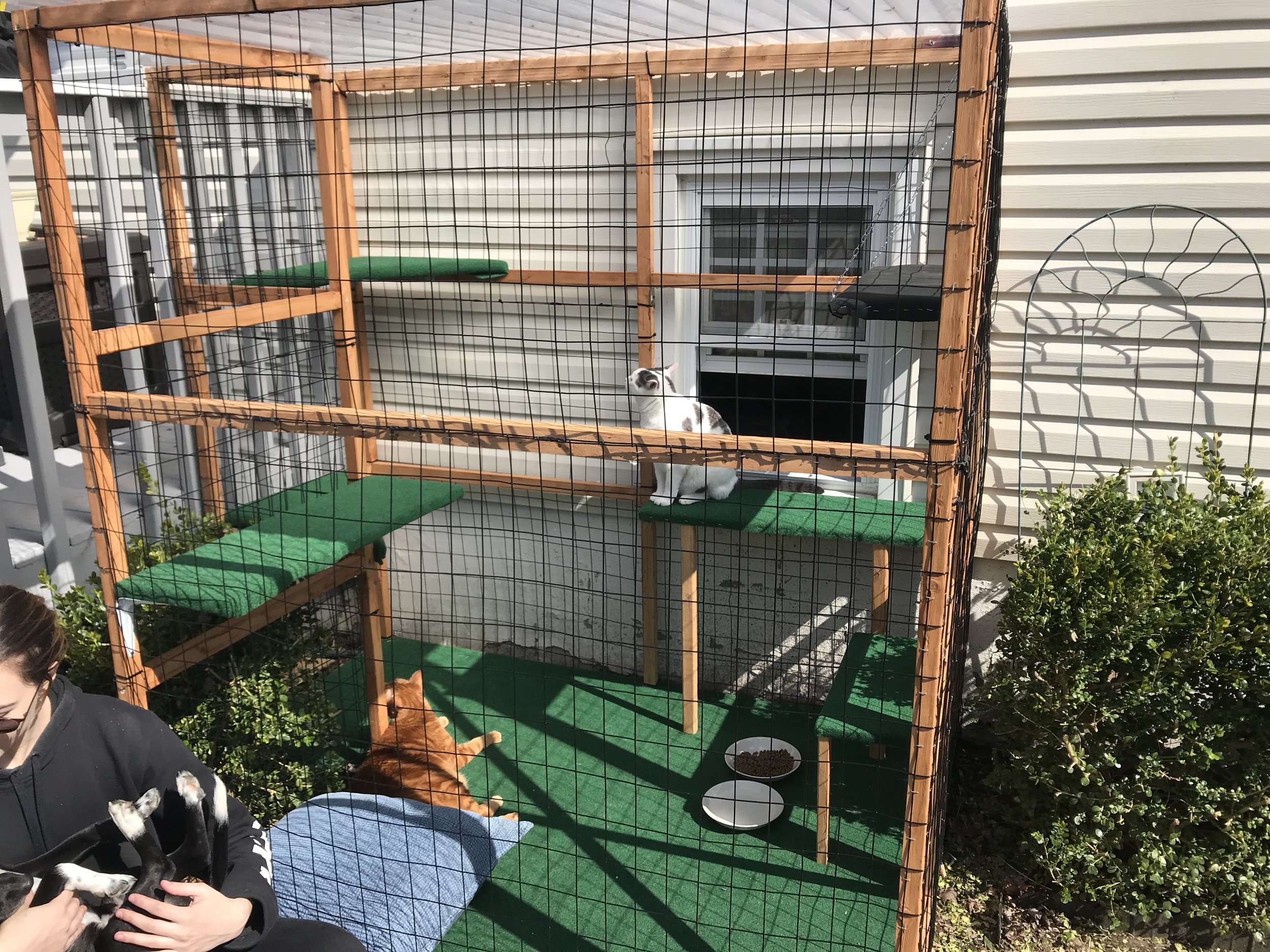Emily Listner is building the future
A producer is, by definition, one who brings forth that which is produced. Sounds straightforward, but let’s really consider the situation. Some thing (an event, a play, a concert, a circus) did not exist and then, it did, and a person brought that thing into being—that it is a truly wild vocation. If we’re to laud the painter for their brush strokes and the poet for words omitted, we should also be giving a little shine to the Emily Listners of the world—the behind-the scenes operators who somehow make all this venue stuff look easy. Emily is our Production and Facilities Manager and we think she is awesome.
atac: Emily, for those who don’t know you yet…what’s your job here at atac?
Emily Listner: My job is a little bit of everything. As Production and Facilities Manager I’m in charge of staffing, technical aspects like lighting, and making sure our performances run smoothly. On the facilities side I maintain the building, schedule services, and make cosmetic changes. I also design and build set pieces for our annual fundraiser, A Night at the Circus.
atac: A true hustler! Maybe that’s the New Yorker in you. But you’re in Worcester now…what prompted the move, and how did you find atac?
EL: I had been thinking about going to grad school for a few years and the pandemic made me realize that this was the time. My lease in NYC was ending, I got into a program at Boston University (BU), and Worcester was the best bang for my buck. It may seem far from Boston, but I was used to a longer commute after dealing with the NYC subways for a couple years. It’s definitely a change but not too drastic. I love that I can still walk to the grocery store on the next block. Then, when I came across the Production and Facilities position at atac, it just felt like the right fit. The mission and values of the organization lined up with my own and I wanted to be part of the next steps.
Above: Listner building on set at BU
atac: Worcester! Home to Polar Park, Ralph’s Rock Diner and so much more. What’s the vibe out there these days?
EL: I love it! Worcester has all the convenience of a city but enough space to be able to breath. I live right next to Hanover and love theater, so I may be a little biased. I think [the city] gets a bad rep from some people, but that’s definitely due to prejudices against diverse communities. It’s a really lively place with a lot of great spots to visit.
atac: Tell us a bit about your program at BU.
EL: I’m in the Technical Production program. We’re responsible for taking ground plans and turning them into 3D models in our computer software so we can then build the sets. We do all the load-ins and strikes as well as the build. A typical week consists of classes in the morning or afternoon, construction Tuesday-Thursday from 4:30-10pm, and some weeks we do a Friday call from 4:30-10pm, Saturday 9am-9pm, and Sunday 9am-9pm. That’s not every week but it is part of the program.
atac: Any special events or shows that have stood out to you there?
EL: Little Row Boat was a student-led production but it’s a new work written by a member of the faculty. It follows Sally Hemings and her 38 year long relationship with Thomas Jefferson. It’s a really interesting piece that shows dialogue between characters then rewinds the scene to show dialogue that was “acceptable.” Black slaves wouldn’t be allowed to speak to white families in certain ways but we’re able to see through to their inner thoughts and what they would truly say if given the chance.
Above: A behind-the-scenes look at one of Listner’s set builds (in progress)
atac: I’m told you’re the first person in your program to also have a job—is that right? How’s the balance going?
EL: That’s what I’ve been told by a few people. The balance is definitely tough. I usually go to work in the morning, class in the afternoon, and calls at night. On the weekends I have off from school I work to make sure I’m meeting my hours. We also have homework that often takes anywhere from 8-12 hours for one class. I’m taking 9 classes for a total of 16 credits which feels crazy. I often feel like I’m not living up to expectations on both ends but you have to take it one day at a time.
atac: Can you talk a bit more about expectations? Who is setting them?
EL: I'd love to help change the mindset of the theatre industry. There is a real expectation to give 100% mentally and physically for 12 to 16 hours a day. We’re told to “pay our dues” because those before us had to. I would love for the industry to realize theatre is a job like any other. Love for a craft should not mean you’re perpetually unable to support yourself. The theatre artists I know are some of the most highly skilled laborers you can find but their skills go unappreciated. I’m a big proponent of fair labor practices regardless of the trade.
atac: What do you perceive as being the root of burnout culture? Is this a budget issue—do ticket sales not yield enough revenue to staff productions sustainably?
EL: The resources are used for the head of each department. If you’re the Production Carpenter or Electrician, hours tend to be the same but the pay is much higher. If you’re a stagehand, you don’t have a contract that guarantees a 6th of weekly pay if you stay for tech. Part of the problem is the lack of workers in the industry. A good percentage of production people left during the pandemic for something more stable. They [producers] could offer two 8-hour shifts, but they may not get enough people in the room [to cover the added costs].
Above: Cats, like humans, benefit from Listner’s building skills
EL: It’s a bit of a double edged sword. If labor practices and pay improve, the cost to see the show rises which contributes to low ticket sales or financial inaccessibility for some. No one wants that, which contributes to a “Don’t expect to support yourself in this profession” mindset. We’re all trained to think that way so we don’t stir the pot and ask for a livable wage.
atac: A lot to unpack there—maybe more than we have time for on the atac blog—but let’s hope it gets people thinking. Switching gears, we must ask—because you are a theater kid—what the top three karaoke songs of all time are.
EL: No one wants to hear me sing, but if I had to choose they would probably be…
Living on a Prayer by Bon Jovi
I’d Rather Be Me from Mean Girls the Musical
Alone by Heart
*
Suggested follow-up reading: Shutting the Door on the Hard-Knock Life, Jesse Green, New York Times, 2022





